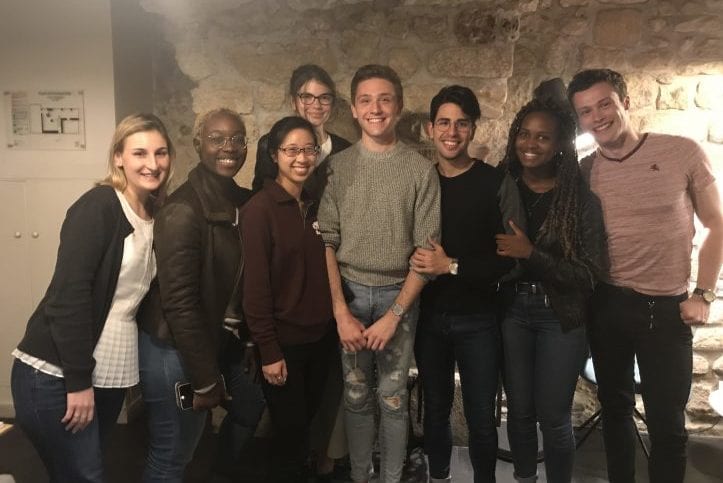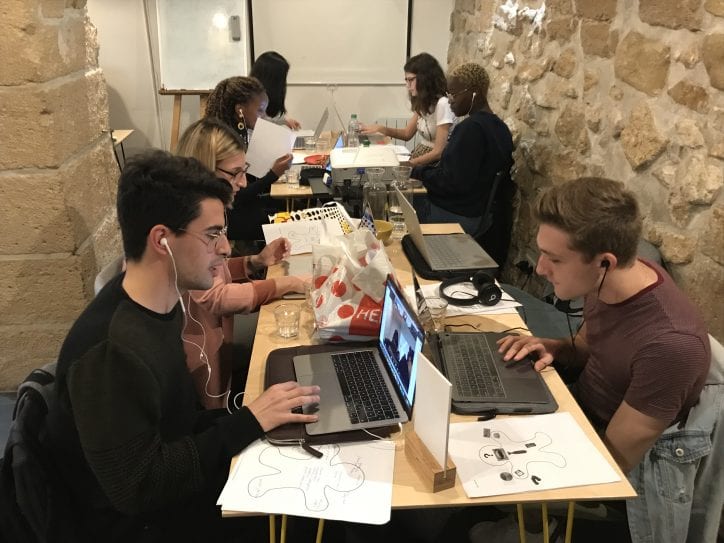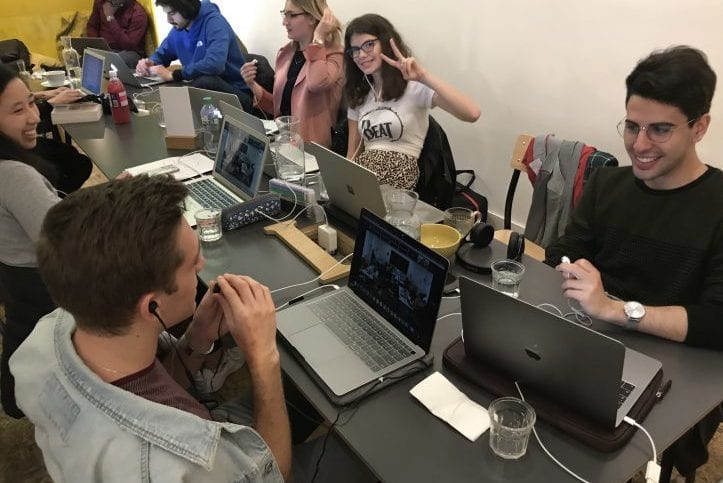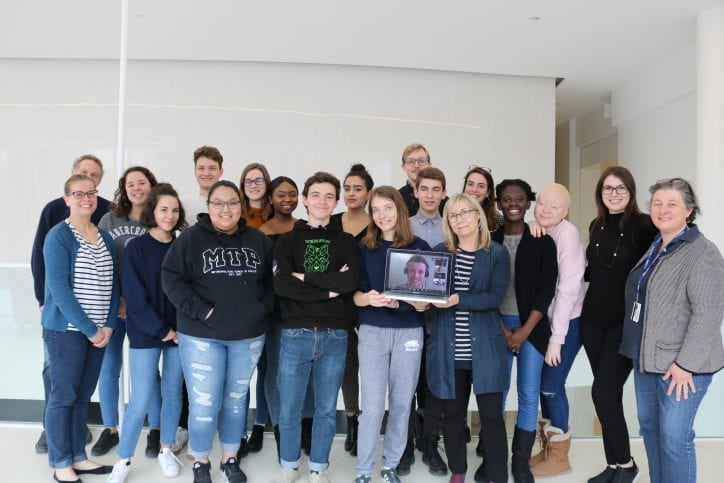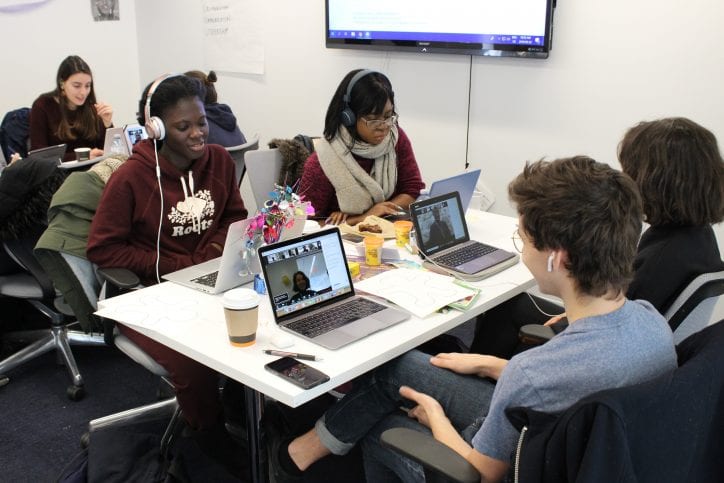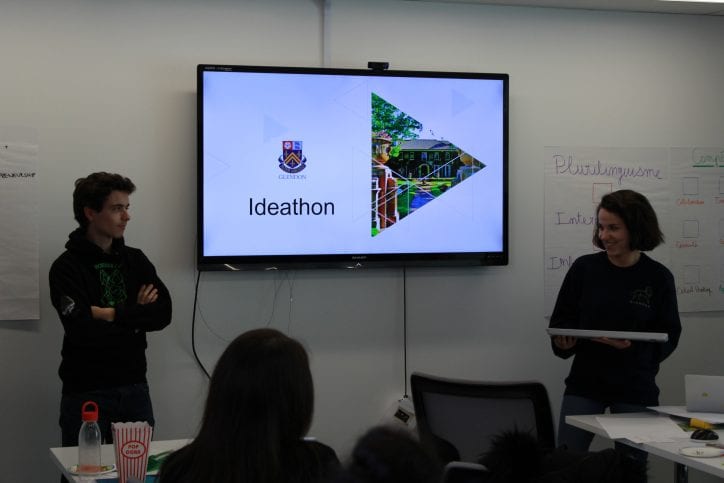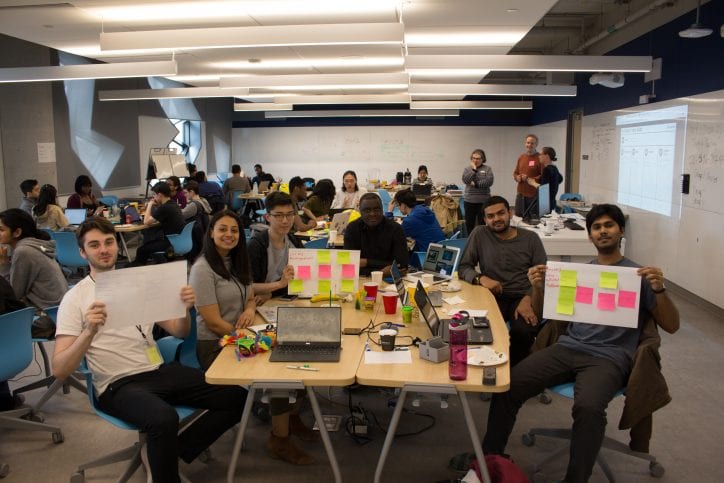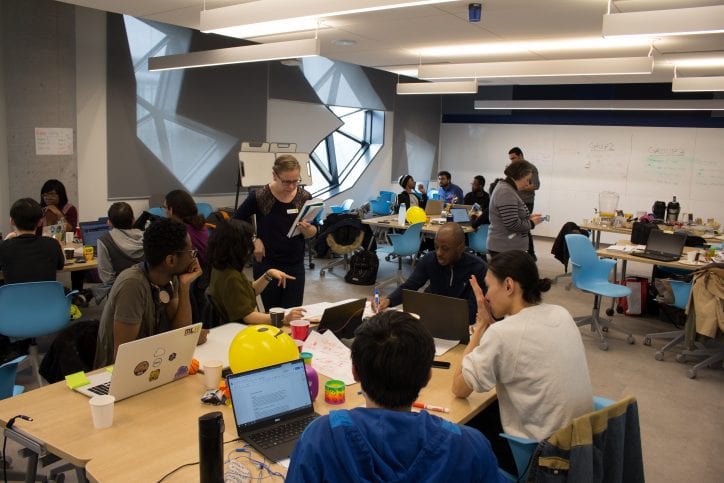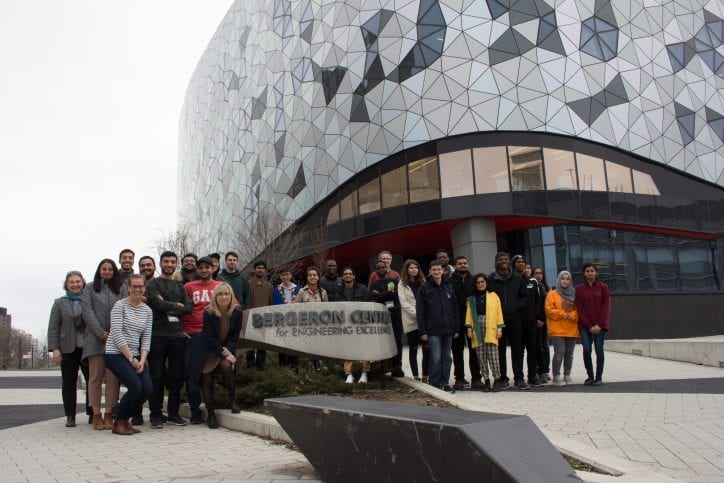The GNL Project at York University was conceptualized in 2013 by Robin Roth, Professor in the Department of Geography(LAPS). Since 2015 the Project with its recent initiatives engaging students and faculty members in the creation of Open Educational Resources for transnational learning experiences is led by Dominique Scheffel-Dunand, Professor in department of French Studies (LAPS). The project has been funded by the Academic Innovation Fund (AIF) at York University. Currently, “the GNL project at York is an autonomous zone bringing researchers, instructors and students together to imagine and experiment with the idea of ‘global thinking’ as a critical skill to acquire for globally networked working environments. GNL can create rich cultural connections by designing a learning environment that engages students locally and internationally in conversations with the goal of advancing collaboratively the latest thinking on global issues," says Dominique Scheffel-Dunand, the current Project Lead.Over the past few years, the Project research team has been exploring ways to institutionalize the initiative at York University. To view the resources we have prepared since the start of the GNL project, please visit the ‘Resources’ tab in the menu.
2015-2018:
Awareness of GNL Pedagogy, Faculty Training, Pan-University Needs Assessment
We worked closely with students and faculty members at both of our campuses to build an awareness of GNL pedagogy. We developed the GNL project team and steering committee, and conducted research on the concept of GNL and how GNL environments have been implemented in institutions of higher education around the world. We designed workshops for faculty members and library staff as well as focus groups for students in order to raise awareness of GNL at both of York’s campuses. These events served as an environmental scan of faculty and students to gauge their interest in piloting and participating in GNL courses. It also allowed us to find out how students and faculty themselves would like to shape the direction of the Project. We also conducted background research into the forms of technology and institutional support currently available and needed in the future, to implement GNL courses and a GNL environment at York.
Once we noticed the surge in interest among both students and faculty in the concept of GNL, we designed and delivered training workshops for faculty members and library staff interested in designing, implementing, and supporting GNL courses. We also prepared a wide range of instructional documents and other materials - including an instructor guide and several videos – and set up consultation sessions to provide faculty members with the support they need to mount GNL courses in the future. Finally, we conducted a pan-university needs assessment with the assistance of Deans and Associate Deans of each Faculty at both of our campuses, to figure out how best to navigate the specific interest and needs of faculty, and how best to institutionalize the GNL project at York University.
We invite you to learn more through some of the resources that have been created for this project.
2018-2019:
Exploring Student-Centered Learning, Development of GNL Modules and Bilingual, Open Educational Resources for Civic and Social Stewardship
Our work on the GNL project evolved in response to the needs, interests and expertise of our students and faculty. In particular, we recognized the need to champion and train students to develop various resources. We recruited students from across faculties with strong problem-solving and leadership skills to design GNL modules and open educational resources (OER) on interculturality, plurilingual communication and academic competencies/informational literacy. These were designed to be embedded initially in Glendon’s Bilingual Certificate in Civic and Social Stewardship and to be appropriated by instructors engaged in the certificate, and over time, by the broader York community.
The framework to develop a bilingual, holistic program in civic and social stewardship used OER, and aimed to support students in developing the skills essential for success in the 21st century university and in the workplace, locally and internationally. Drawing on frameworks for 21st Century Learning, such as the Council for Ministers of Education, Canada’s global competency framework (character, citizenship, collaboration, communication, creativity and critical thinking), as well as well as York’s own strategic thinking around internationalization, we aimed to model Open Pedagogy at York with the prototyping and development of 3 modules on interculturality, plurilingual communication, information literacy and academic competencies to embed the development of these competencies in courses from across the disciplinary curriculum. This framework used evidence-based practices for effective teaching and learning, guided, in part, by a partnership with the Teaching Commons at York University. Moreover, the proposed certificate is grounded in Lizzio’s ‘Five Senses’ of Successful Transition and related to experiential learning and student leadership development frameworks such as the Social Change Model of Leadership Development and Kolb’s Cycle of Experiential Learning. It also employed a cohort or learning community-based model which has been demonstrated to positively impact student success. By educating and empowering promising students to become bilingual leaders who build bridges within the university as well as with diverse communities of stakeholders, this program was grounded in a global vision to improve access to education worldwide for teaching/learning projects.
We invite you to learn more through some of the resources that have been created so far.
2019-2020:
Using GNL to work towards an integrated international, bilingual and competency-based open education curriculum
Based on our findings from the 2018-2019 project on exploring student-centered learning, and the development of GNL modules and bilingual, open educational resources (OER), we plan to develop and solidify a virtual ecosystem at York and beyond to enhance the building of its community of learning.
We have two goals for the upcoming year: i) to propose the design of an algorithm supporting the creative and evaluative methodology informed by the learning experience of the 2018-19 AIF project; (ii) to develop visuals and guides around open pedagogy to scale-up the integration of open educational resources (OER) into the curriculum, thus supporting initiatives led by the libraries on Open Pedagogy and transforming the community of practitioners at York into a community of learning. Beyond the operational part of the project, the automated platform will enhance interactions between the actors engaging with the resources at the pan-Faculty level, as well as in transnational contexts. This new project promises to develop and solidify a virtual ecosystem at York and beyond. It will enhance the building of York’s community of learning in supporting users to interact with each other when revising, reusing, remixing and thus expanding the learning cycle of pedagogical resources either a students, instructors, librarians, educational developers, curriculum designers and IT administrators.
Finally, we plan to pilot two other activities: i) a framework for selecting or designing resources for development based on the scale of application required (for example: rapid prototyping, mid-size hackathon / ideathon projects and larger resources which will be able to be developed through cross-disciplinary collaborations such as capstone seminars) at the pan-Faculty level; and ii) the cross-disciplinary application of the Globally Networked Learning (GNL) framework to explore how student outcomes translate, not only across country and language barriers, but also across broad disciplinary boundaries.
Read about Ian Martin's work in GNL in 2020 here.


